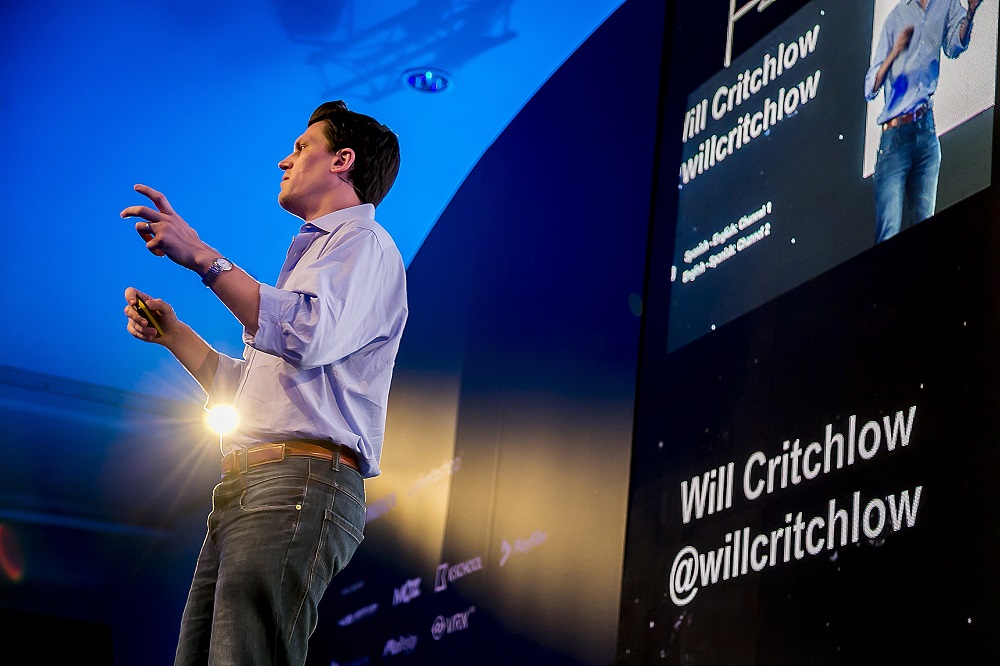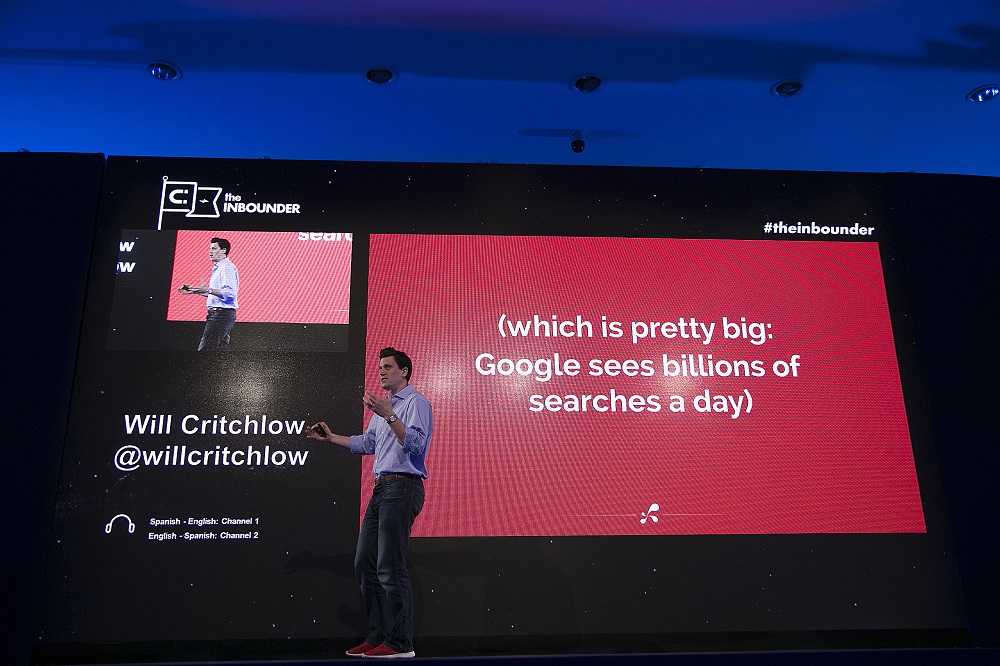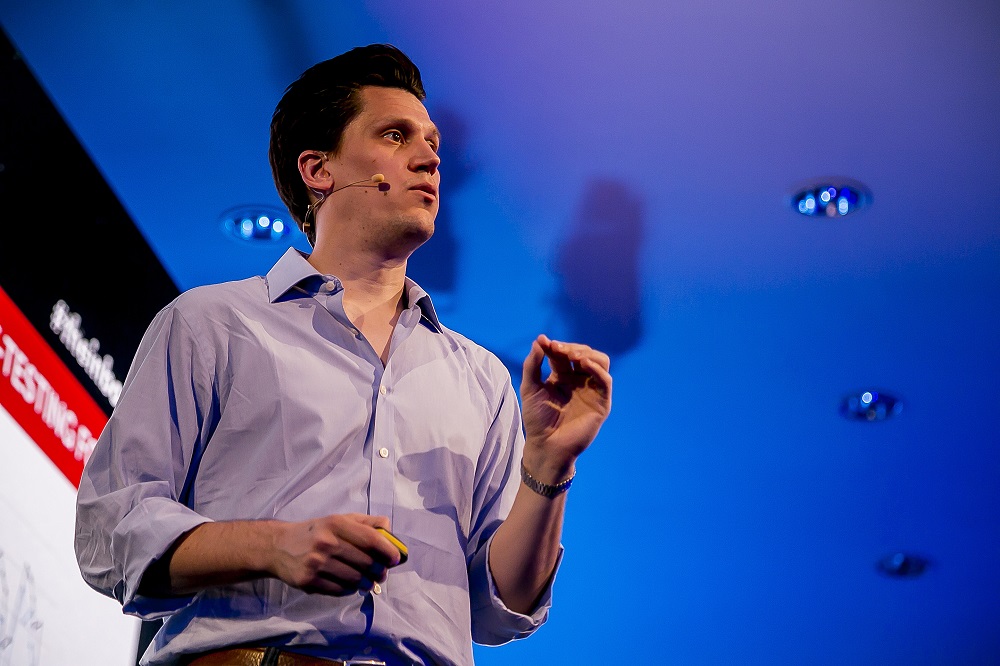If there exists just one person who is able to combine deep understanding of what the future of Search Marketing offers and the undeniable ability to communicate complex concepts in a way for all to understand, then that person is Will Critchlow.
The founder and CEO of Distilled, one of the most recognised online marketing agencies in the world, was one of the 20 international speakers who participated in the first edition of The Inbounder.
His presentation at the event (for which you can find both his complete session video and presentation slides on this very page) focused on emerging trends in Web Marketing.

The trends discussed have a common denominator: the use of mobile phones.
Mobiles are not a novelty, especially when it comes to mobile search, as for many years people have been predicting that the future of Search is on mobiles. But only in the past 12 months have we truly seen this trend becoming a reality and not only a short-term prediction.
Will, however, did not want to focus on the specification of mobile search. Instead he almost uses it as a background thought and focuses on something more important that will really determine the future of Search Marketing and all disciplines of Web Marketing: how we are all changing the way in which we search for information; using mobiles instead of how we used to sit in front of a PC.
Normally when we think of the action of looking for something on the internet, in our minds we associate these searches with Google’s classic search box. But things are changing rapidly and this stereotype is beginning to seem like old news.

Now we can search for information by simply highlighting a word. For example in Macs you can find more information about a word when in your browser by using Spotlight. Or we can ask one of the many personal assistants that exist (SIRI, Cortana, Google, Alexa…) to find information for us on the internet using our voices.
How we search is changing, and Search Engines know it.
As Will says in his talk, we cannot think about Search without also thinking about factors like the context in which a search is performed, and how Google personalises the results of the searches each of us does. Without these two factors, the results would be very similar to the classic 10 blue links that we saw years ago and, above all, the experience and results would be unsatisfactory for the user.
One of the most interesting concepts to consider is ‘time’, which Will explains when discussing contextual searches. How long would you consider a search session in the context of others? We normally associate context with something physical (for example, looking for a restaurant whilst in the middle of the city), but this is not the only “context” that exists.
Another could be linked to the final purpose of a series of searches. For example, if Google begins to notice (via our search history) that we are looking for information about Paris and we begin looking at generic information but later begin to delve deeper into the specifics of the city, then our search show that we intend to make a transaction regarding these searches (example: searching for hotels in Paris). So, Google will use this context to personalise our search results and guide us towards our final goal. The average conversion time from when a user makes their first search can take up to 30 days.

The challenge for search engines now is voice search as it is becoming more and more popular with younger people. The natural language that we use when looking for something vocally is entirely different to what we would type for something like “Luxury Paris Hotels”.
The challenge for search engines is no longer understanding what we mean in literal terms, but instead what we mean when we ask something.
Will discusses this point by discussing the implicit aspects of search and how Google now tends to connect successive searches, considering them as results of a more general search (Compound Queries), and therefore these multiple searches are being influenced by the results and intentions of the searches that came before.
Being able to respond quickly and effectively to searches that we undertake vocally (or not) whilst we are driving our car for example is among the things that have led us to Google’s Answer Box, to the evolution of Google Now to Google Now on Tap, and now Google Assistant.
So, what challenges do marketers face, and how can they tackle them?
How can we check our position when we live in a world where everything is personalised?
And how can we be sure that we are allocating a conversion in the correct way?
Will the web analytics that we use now continue to exist or change completely?
These questions and many more are addressed in Will’s presentation using a wide range of sources (take a look at the links in his presentation).
The future is already here. We cannot stand by and continue with our old mindsets.
